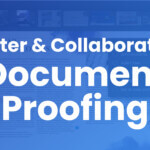What do Marc Benioff, Steve Jobs, Arianna Huffington, and Bill Ford have in common? Besides being incredibly successful, they have all credited mindfulness and meditation as having a positive impact on their careers.
You don’t just need to take their word for it. There’s a growing body of evidence supporting the idea that mindfulness and meditation can positively influence the brain at a neurological level.
It would be hard to claim that all of the stellar productivity that got these high-performers where they are was simply due to their mindful or meditative practices. However, there are compelling reasons why adding mindfulness and meditation to your toolkit can help you hit your productive peak.
Unpacking Mindfulness and Meditation
Mindfulness and meditation are often used interchangeably but there are a couple of key distinctions between the two terms.
Mindfulness is being truly aware of what you’re experiencing in a given moment. As academics at UC Berkley define it, “When we practice mindfulness, our thoughts tune into what we’re sensing in the present moment rather than rehashing the past or imagining the future.”
It isn’t a case of blocking out thoughts, sensations, and emotions, though. It involves observation: acknowledging what comes into your mind without judgment. It’s about being present, focusing on being in tune with what’s happening internally and externally. You can reach for mindfulness anywhere and at any time.
Meditation requires more active concentration and, ideally, a quiet location. It involves using structured techniques to enter a state of heightened awareness. There are many different types of meditation, including visualizations, movement, mantras, and more.
Mindfulness and meditation are inextricably linked and practicing one will help you practice the other. However, it’s important to remember that being more mindful doesn’t necessarily require you to meditate in a structured way.

How Mindfulness and Meditation Boost Productivity
Mindfulness and meditation positively impact your productivity by strengthening your cognition, mental discipline, emotional awareness, and resilience.
Stronger Cognitive Function
Many studies have concluded that meditation causes growth in various regions of the brain, improving cognitive function directly. It was found to reduce “proactive interference”, where previous memories prevent you from recalling new information. It was also linked to growth in the hippocampus, the part of the brain responsible for memory.
Marc Benioff, the CEO of Salesforce, puts this idea into practice, implementing “mindfulness zones”, where employees put their phones away and clear their minds. The goal is for workers to become present and tap into uninfluenced curiosity surrounding the task.
Better Focus
Another key benefit is that mindfulness and meditation improve your ability to focus on a particular task and regain that focus after a distraction. Mindfulness helps you recognize when your mind is wandering, while meditation teaches you to reliably redirect your brain onto the particular thing you’re focusing on. A few minutes of practice a day may be enough to enhance your ability to pay attention.
Steve Jobs is quoted crediting a version of mindfulness to his ability to focus on and solve problems: ” …there’s room to hear more subtle things–that’s when your intuition starts to blossom and you start to see things more clearly and be in the present more.”
Regulating Emotions
Mindfulness and meditation also seem to make it easier to recognize and regulate emotions. By becoming more familiar with your feelings, it’s much easier to realize how they’re dictating your responses or impacting the decisions you need to make.
During a difficult time for Ford Motor Company, executive chairman Bill Ford made time to meditate every day and set a daily mindful intention to deal with any situation that arose – with compassion and kindness.
When confronted by an emotionally charged situation, being mindful reminds you to pause and then base your response on your longer-term goals or desires, rather than on how you’re feeling in that particular moment. This more stable and considered approach to how you react in challenging situations will have a tremendous impact on your collaborations and productivity.
Reducing Stress and Anxiety
Importantly, mindfulness and meditation can help you deal with workplace stress, which can easily lead to a loss of focus, poor decision-making, fatigue, and long-term conditions like burnout.
Research suggests that mindfulness and meditation change neural pathways associated with stress, lowering your body’s natural stress response. They also give you practical tools you can use to re-center yourself when you’re feeling overwhelmed, putting you more in control.
Arianna Huffington, who has meditated since the age of 13, explains: “Through mindfulness, I found a practice that helped bring me fully present and in the moment, even in the most hectic of circumstances.”
Mindfulness and Meditation at Work
Adopting a mindfulness or meditation practice can seem quite daunting at first but it doesn’t need to be. Spending as little as 10 minutes a day could be enough to reap the benefits. As with any habit, what really matters is that you build up slowly and keep on doing it.
Here are 7 small acts of mindfulness and meditation that you can easily incorporate into your workday:
Take a Moment to Breathe – Mindful breathing is one of the quickest and easiest practices there is. There are plenty of useful breathing exercises out there but it can be as simple as really focusing your attention on how it feels to breathe naturally.
Ground Yourself – Grounding techniques help you to anchor in the present moment through your senses. They’re particularly useful if you’re experiencing negative emotions but they’re a good way into mindful awareness even if you’re not.
Guided Meditations – Guided meditations involve someone else talking you through a meditative exercise. They’re incredibly useful as they give you structure and reassurance. You can access a huge range of guided meditations for free on platforms like Spotify and YouTube.
Yoga – Yoga is an excellent form of movement meditation as it helps you to concentrate on how your body feels in the present moment. The poses require just enough concentration to focus your mind. Try these stretches you can do at your desk.
Mindful Journaling – Journaling is a chance to observe the thoughts that bubble to the surface. You can then get them out of your head and onto the paper, freeing you up to focus on what you need to. It’s a great way to take a moment to slow down, and let go of the need for “busyness”.
Mindfulness Apps – There are many apps like Calm App, Aura, and Headspace that have been specifically designed to make mindfulness and meditation easier to incorporate into your day. Features include guided meditations, tips, calming soundscapes, and tools to help you keep track of how you’re feeling.
Setting Intentions – Take a few minutes to reflect on how you’d like to approach your day, your week, or even your month. Try to sum it up with a statement that you can say aloud or write down – that way, you have something you can refer back to in the heat of the moment that will help you align what you do with what you want.
Mindfulness and Meditation Matter
Mindfulness and meditation have been scientifically show to have enhance your performance at work, helping you focus, and stress less.
You don’t need lots of time, expensive resources, or a designated space for mindfulness and meditation to be effective. Simply spending a few minutes each day is enough to experience the benefits.
So, whether you start your morning with a guided meditation, do a little lunchtime yoga, or simply take a few minutes to set an intention and breathe between meetings, you’ll be making all the difference to your productivity.






